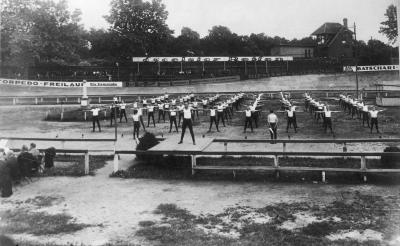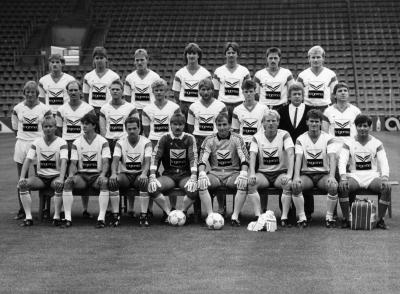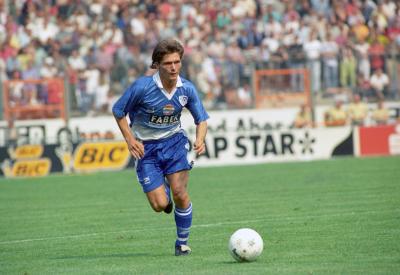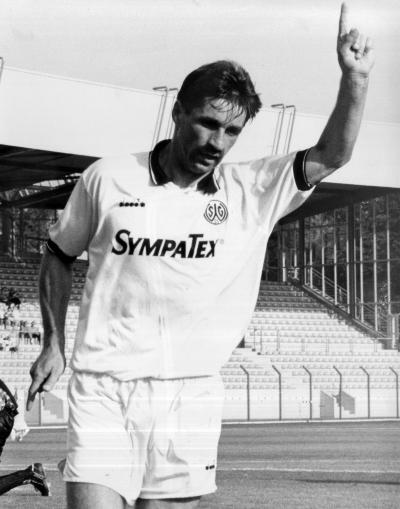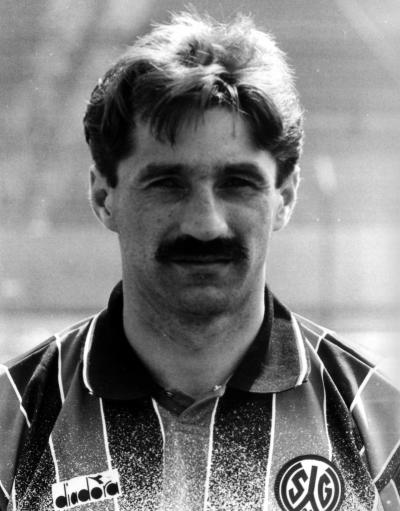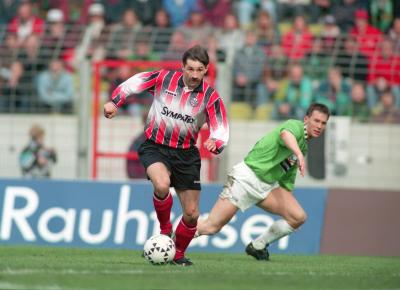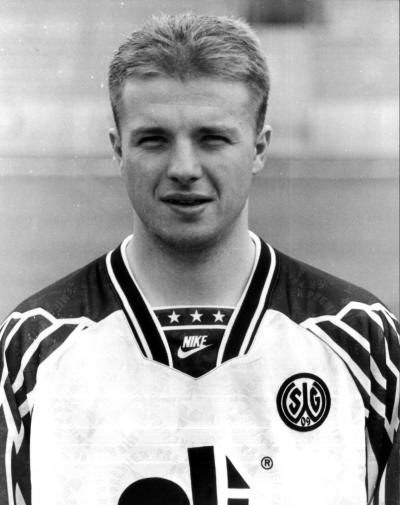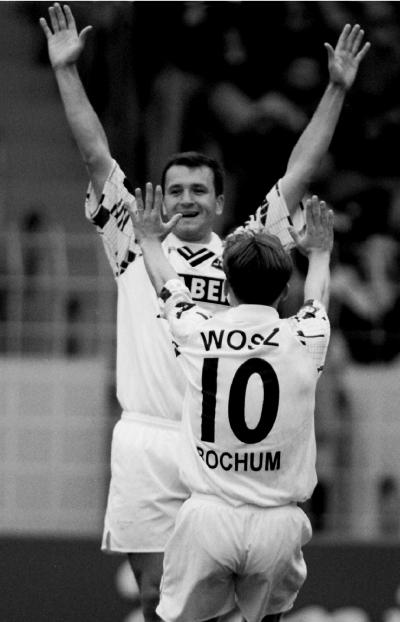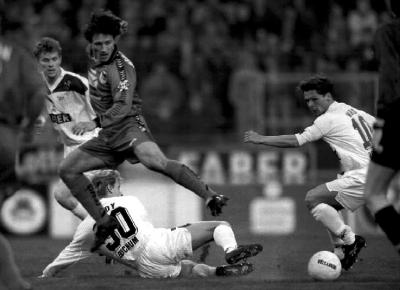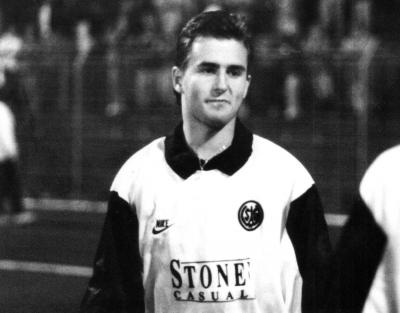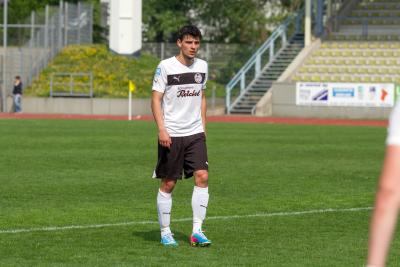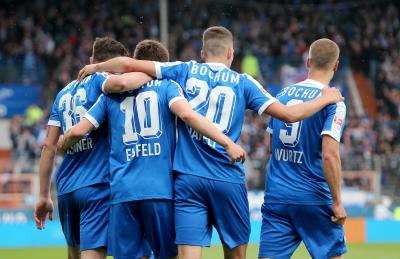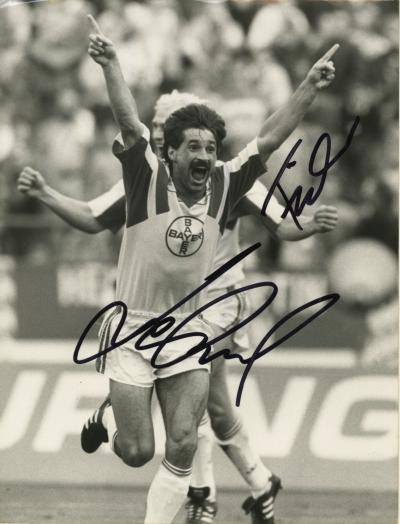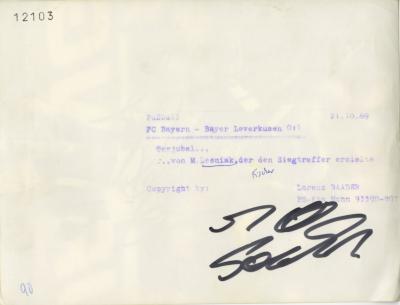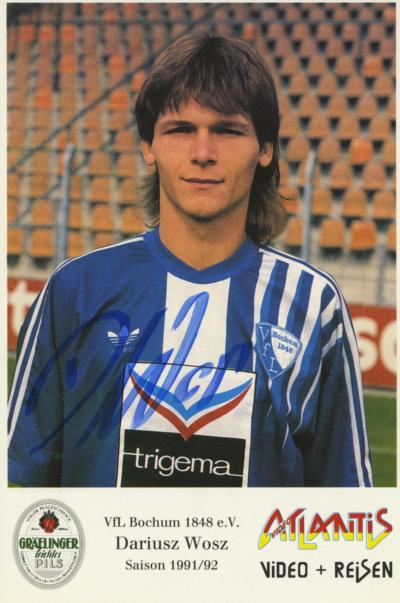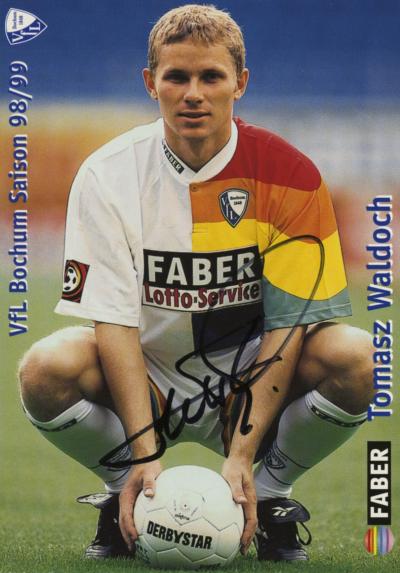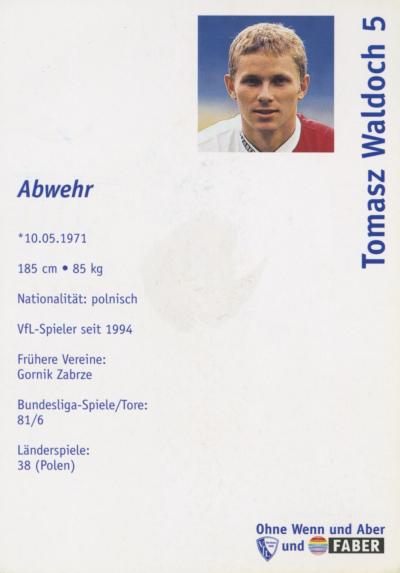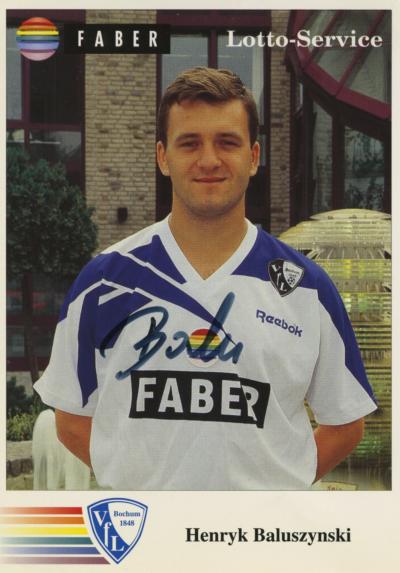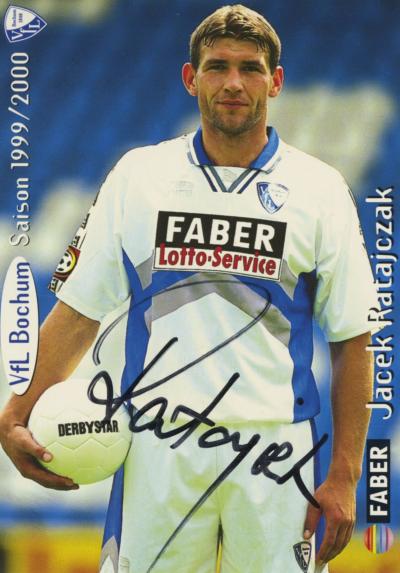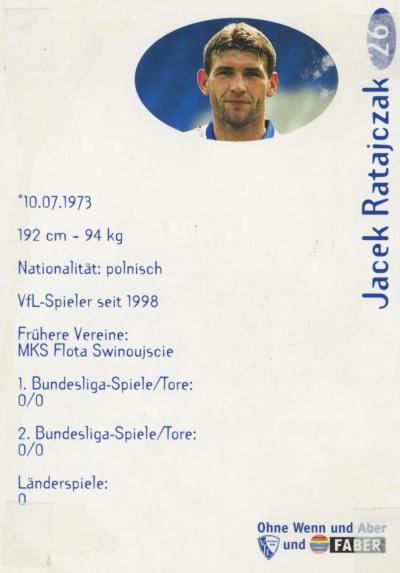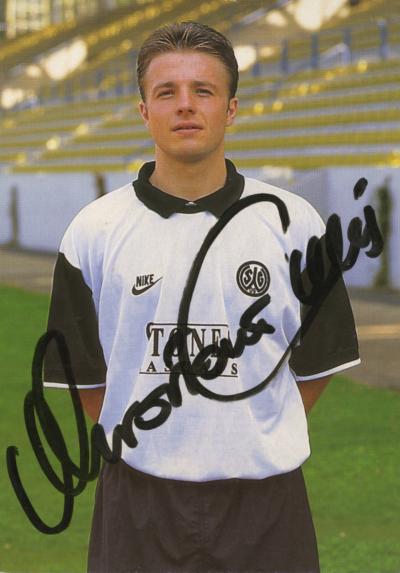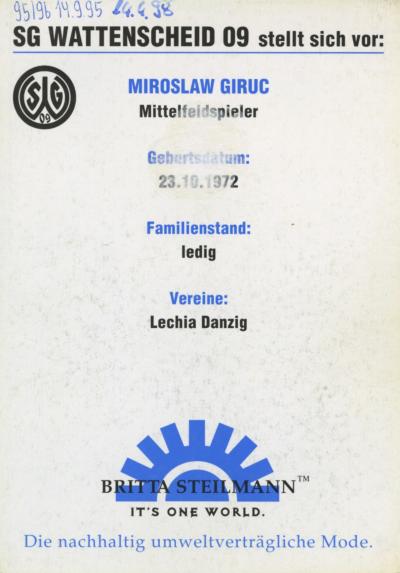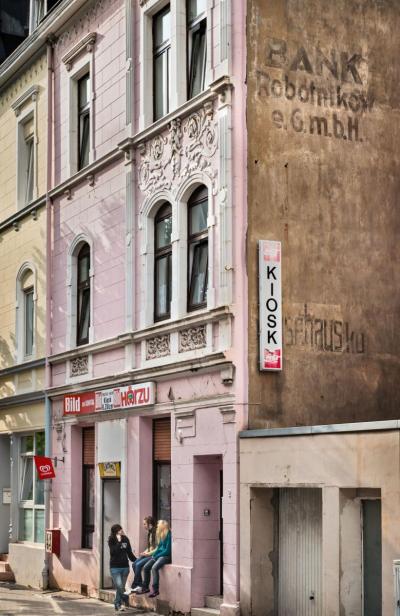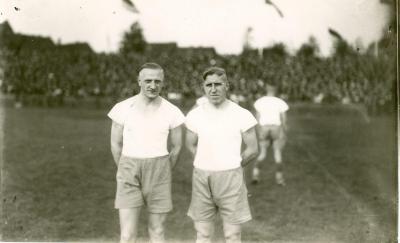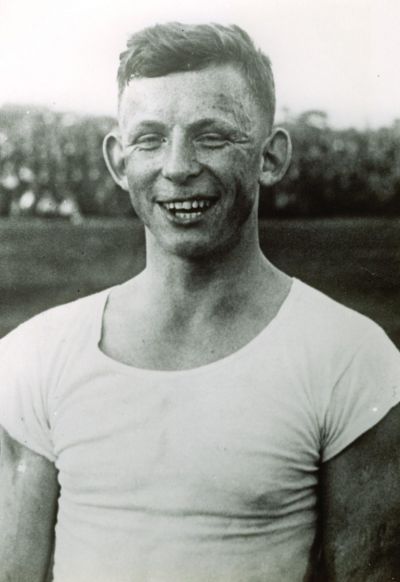From the Sokół club to Dariusz Wosz – Polish sport in Bochum

In Bochum, Polish national activists, such as Jan Brejski mentioned earlier and the editor of the “Wiarus“ Stanisław Kunca operated as members of the Sokół society. The gymnastics clubs have been part of the Ruhr area since 1899. An increasing tendency of the Polish mining folk “to clash” with the administration, which let to the bloody “Herne riots” in the same year, motivated the Polish community to close a gap in their organisation framework.[9] They became part of the federation which organised associations in West Prussia and Silesia, in Berlin and in the Ruhr area right up to northern Germany, and mobilised them towards Polish nationalism. There were five territories in Rhineland-Westphalia. The clubs in Bochum belonged to the Rhenish-Westphalian territory, the Wattenscheid associations to the Rhenish territory, which was headquartered in Wattenscheid, and Langendreer, and Gerthe belonged to the Westphalian territory. Within what are today Bochum’s city boundaries, there were around 12 Polish Sokół societies in 1910: Bochum, Altbochum, Wiemelhausen, Riemke, Bochum-Grumme, Bochum IV, Bochum VII[10], Wattenscheid, Linden-Dahlhausen, Weitmar, Langendreer, Gerthe. As well as having a gymnastics operation, which was aligned with the principles of German gymnastics, the Polish gymnasts also intended to promote activities for the good of Polish national cultural education. Around 450 members were registered in the 12 clubs, although the number of active members was between 50 % and 70 % lower. As with the German gymnasts of the pre-March era and the 1848 revolution, the organisation’s pledge was often a statement of a national political attitude, not always necessarily of the willingness to engage in physical training. Female members were not organised in any of the societies and only the Wattenscheid Sokół society actually practised gymnastics in a gymnasium.[11] Just like the socialist sportsmen of the working classes, the Polish-speaking immigrants in the Wilhelmine class state had little access to municipal resources. The majority of the migrants were male. The Prussian Law on Associations of 1850, which was only superseded by the Reich’s Law on Associations in 1908, forbade women from becoming members in political associations, which is what Sokół organisations were considered to be. After 1908, women were, in principle, allowed to be members, however the national Catholic conservative structure of the Polish community continued to restrict their activities. This is where Prussian repression, the demographic structure of migration and conservative Catholicism excelled in constructing women-free spaces.[12] Since the organisations were also considered “political” within the meaning of the Reich’s Law on Associations of 1908, they were forbidden from organising youth gymnastics. This barrier severely restricted the mobilisation and recruitment possibilities of the Sokół societies.
The sporting operation of the Sokół organisations was restricted to the German gymnastics mentioned, and only rarely were light athletics and group gymnastics permitted. The group exercises had to be dictated by the head office and were often underscored by patriotic music, which was important for organising festivals and processions. Recreational activities, such as football, hardly ever took place. Competitions with German associations were not allowed. Socio-psychologically, the Sokół societies were both a place of retreat and a means of mobilisation for the community of migrants that had been so affected by acculturation problems and disintegration tendencies.
The fear of anti-German, national political activities by the Sokół gymnasts, a fear stirred up by the authorities, led time and again to public activities being prohibited. This meant that the territories occasionally held their territory meetings, the so-called “zlot”, which semantically denoted the flight of the falcon, in Winterswijk in Holland. However, despite a few radical statements made by Sokół officials in American newspapers, these fears of disloyalty proved unfounded. Things became serious at the beginning of the First World War. In February 1917, three years after the outbreak of war, the Rhenish-Westphalian territory, to which the majority of the Bochum associations belonged, summarised the situation in a submission to the Bochum police commissioner as follows: “At the beginning of the war, Territory X of the Polish gymnastic clubs here had around 1,800 members. According to our statistics, 1,152 members were immediately called up following the start of the war.” The submission continued to talk about the price of this loyalty to Prussia and the German Reich: “Up to now (that is until 1917, D.B.), 142 Polish gymnasts from our territory have died a hero’s death and 91 have been awarded the Iron Cross. All of them have loyally fulfilled their military obligations with dedication, to which the many promotions to NCO also bear witness. The gymnastic training in our clubs stood them in very good stead in enduring the stresses of war.”[13]
[9] Blecking, 2001, p. 43-44.
[10] The somewhat odd count is due to the fact that associations quickly disbanded again, particularly during the first phase of establishing the Sokół in the coalmining district.
[11] Statistical data on the Sokół societies in Bochum in Blecking, 1990, p. 231-233.
[12] It should not be forgotten that the German Football Association (DFB) was a women-free space until 1970.
[13] Cited from Blecking, 1990, p. 176-177.
